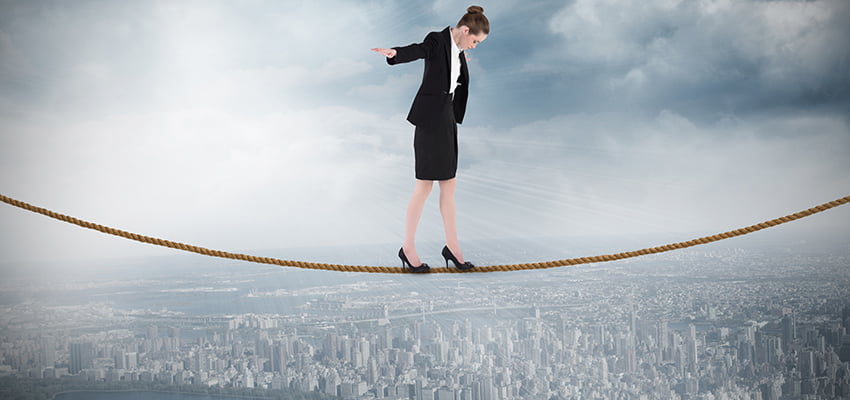WEATHERING challenges is a theme not just for Australia, but for all of us in the maritime community. The 2019 IMO World Maritime Day Theme of “empowering women in maritime communities” fits well with the International Women’s Day theme of “balance for better”. This year’s IWD theme was chosen to help promote awareness of women’s equality and diversity challenges.
A balanced community?
How are we doing with our balance in the maritime world? We could be doing better.
We still have a very unbalanced workforce – only 2% of the maritime on-water operational workforce are women, with many shore positions flowing on from those seagoing positions. It is hard to imagine a profession that has less balance. As we reflect on the “balance for better” theme, how can each member within the maritime industry support gender diversity in their workplace?
We need some bold initiatives. Since 1908, gender-equality related strikes, marches, campaigns and rallies have been held every year – yet balance still eludes us. We need innovative initiatives that drive long-term success. Initiatives that challenge the unconscious (and conscious) bias that exists in our workplace at all levels. Hundreds of years of conditioning has resulted in generation after generation believing that jobs at sea, in maritime operations and other maritime sectors are for men: “girls don’t do that”.
But girls do do that. Since the beginning of 2019 the Nautical Institute South East Australia has raised the profile of women in maritime, one woman at a time. The women.in.maritime Instagram account will profile an amazing woman in maritime each day for the 365 days of 2019.
These stories are powerful and deeply inspiring. Some stories relate the stunningly simple safety needs that must be addressed to ensure success: women who develop personal protective equipment that actually fits, providing the safety benefit that men take for granted. Women are transforming the industry, but it is an uphill battle.
We need some bold initiatives. Since 1908, gender-equality related strikes, marches, campaigns and rallies have been held every year – yet balance still eludes us.
Maritime and the value of diversity
Why would any women want to work offshore, be a ship’s engineer, work as a fisheries officer, or a stevedore if, at every turn, she faces unique barriers? When entering the maritime field, why should she have to justify her decision?
She does the job, and she does it well. But, to change the balance, she has to know that there is an opportunity to work in the maritime industry. Girls (and boys) often do not even know about maritime careers as they journey through their schooling life – innovative initiatives must be taken. A key measure is through education, letting women and girls know they have a choice. Organisations need to be committed and serious about the value of diversity in their workplace, seek out the excellence to be found in a diverse workforce, and follow this up with improved consideration for flexible work arrangements, parental leave policies, roster amendments, appropriate facilities.
Only with visibility and creation of entry level opportunities for women, along with education to address unconscious biases and full acceptance of diversity and inclusion, will we see gains on the 2% and, more importantly, gains on successful operations with engaged work teams.
Raising the bar
Maritime industries globally have had centuries of practise in integrating and working with diverse nationalities across all levels of maritime. It’s time to lift the bar globally on gender diversity. Let’s not let the woman in India, for example, who chooses to have a family and a career, be held back from returning to a position of engineer officer and reaching her goals of one day becoming a chief engineer.
Closer to home, with diversified groups of people, we can ensure our maritime policy makers have good female representation, bringing a fresh perspective to reinvigorate the Australian commercial fleet. It is the year 2019, and this year the IMO is recognising the value of empowering women in maritime. Let’s make sure Australia’s maritime communities continue to do their bit to make a bold stand for a great future.
* Jillian Carson-Jackson is senior vice-president at the Nautical Institute (International) and chair of the NI South East Australia branch.
Jeanine Drummond is the Newcastle harbour master, Port Authority of NSW
This article appeared in the March edition of DCN Magazine

